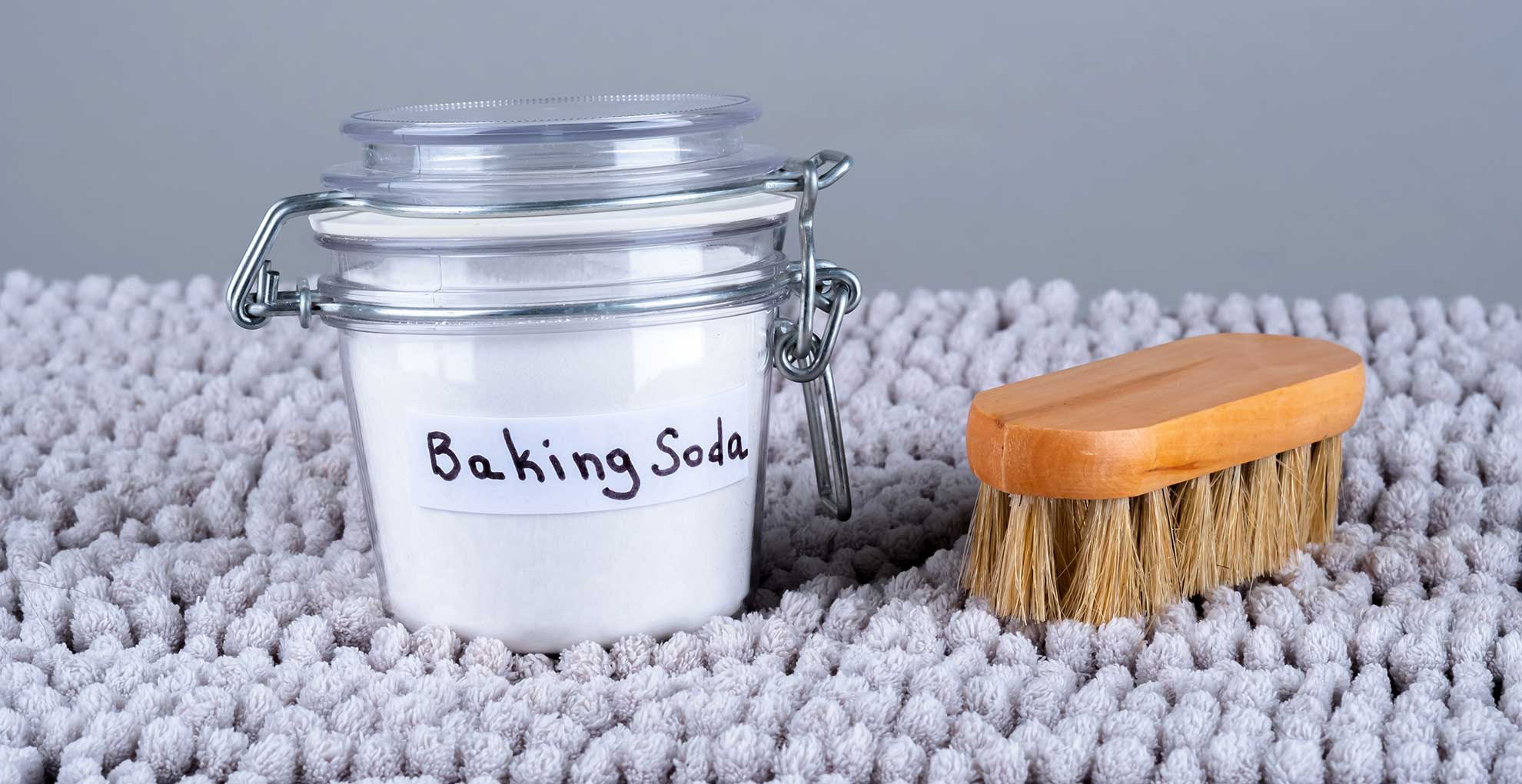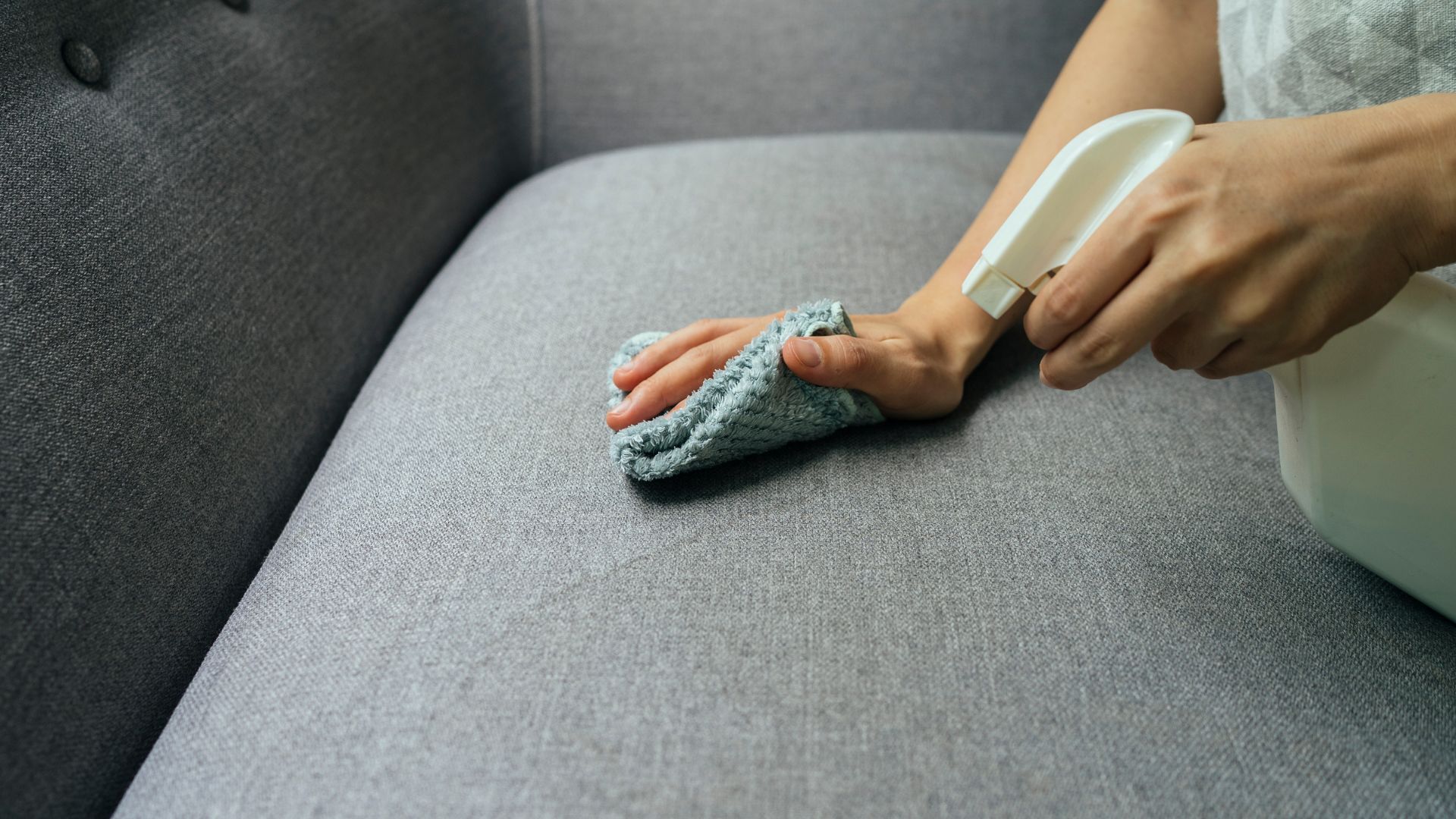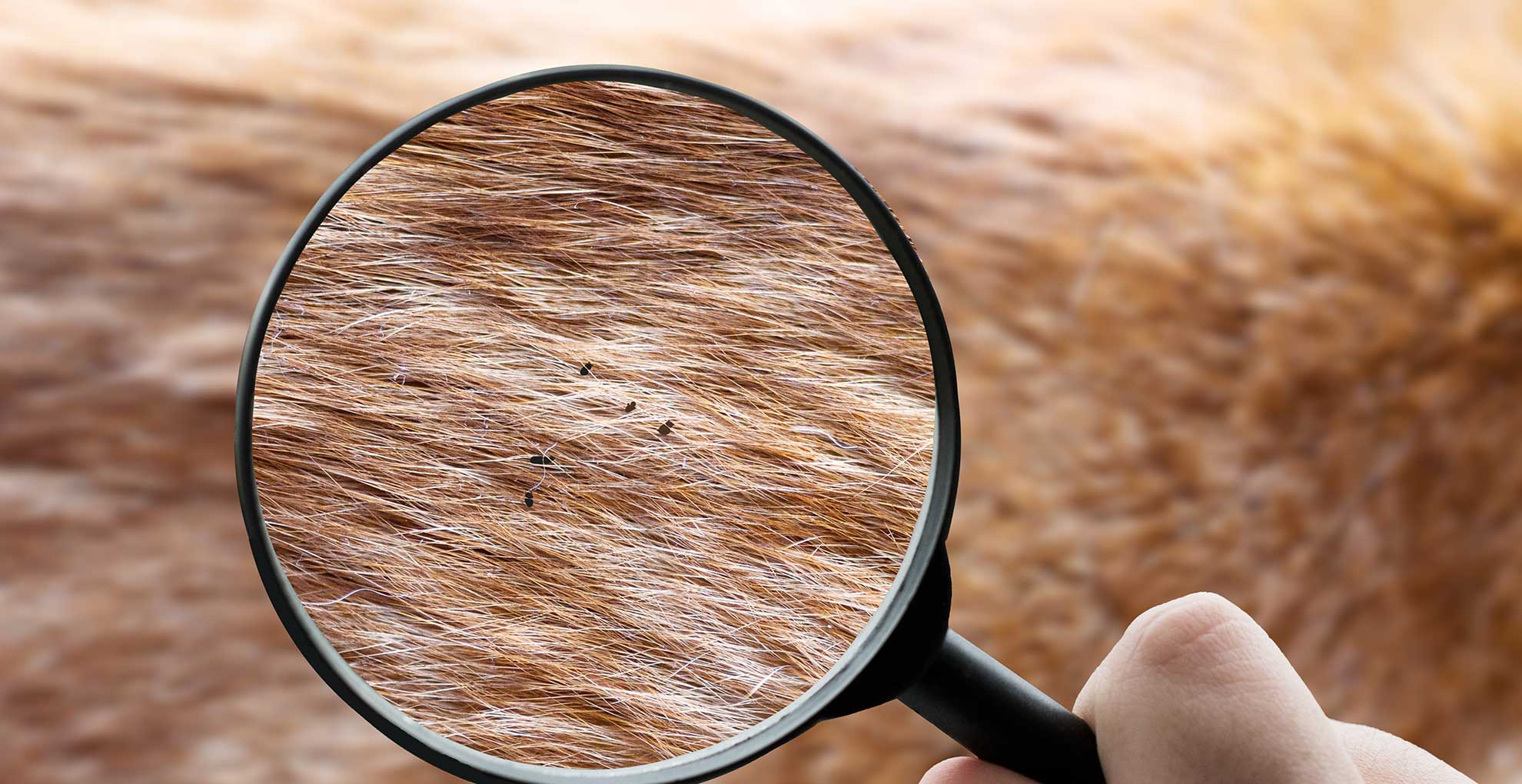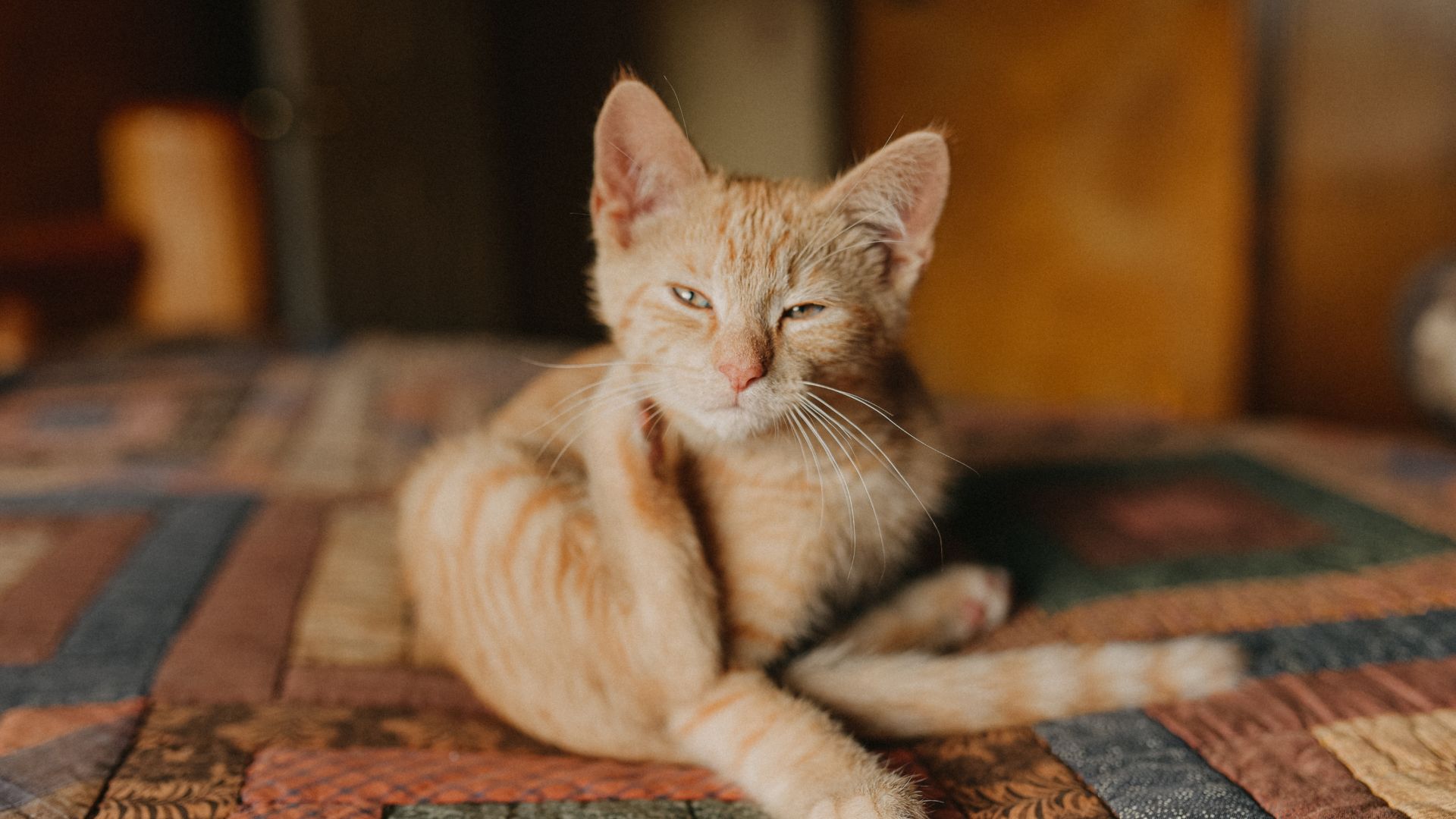
Whether you live with cats or dogs, it’s always a good idea to master how to get rid of fleas in your home. More often than not, we don’t realise our furry friends have them straightaway so getting ahead and learning how to eradicate them quickly can make all the difference.
Fleas are the unspoken downside of living with furry animals that venture outdoors and then reside in our homes, nestled in our soft furnishings and sofas unaware they have just permitted entry to unwelcome fleas. Because if your beloved pet has fleas your house is likely infested too.
Fear not, similar to getting rid of little black flies in your home, how to get rid of ants or keep wasps away there are handy hacks to do the job with relative ease.
Here's an expert-approved guide on how to get rid of fleas in the house fast and prevent them from returning.
How to get rid of fleas in the house fast: expert advice
Ensuring your pets have regular flea treatment is of course the easiest way to prevent the problem, always treat them according to your veterinarian's instructions.
But if you do find yourself with fleas in your home there are several easy methods to get rid of them and rescue your home from a serious flea infestation.
1. Vacuum extensively
If you find yourself with a flea problem, you must increase how often you should vacuum a lot, covering all areas of your home to ensure they don't spread. "For at least a few weeks, vacuum all carpets, rugs, upholstery, and pet bedding daily," advises Georgios Likopoulos, a pest exterminator at Fantastic Pest Control.
"Fleas love to burrow away, deep within the fibres so getting in a routine of vacuuming a few times a week will help get rid of them and disrupt the life cycle," says Lisa Melvin, an expert at Bob Martin, a specialist in healthcare for pets.
"You should focus your attention on areas where your pets spend time. Remove flea eggs, larvae, and pupae using a vacuum and beater brush. Seal the vacuum bag or empty the canister outside after vacuuming to prevent fleas from escaping."
2. Sprinkle baking soda
While it is more commonplace to clean your oven with baking soda it can also come in handy to get rid of fleas. This humble pantry ingredient is a chemical-free way to clean carpets and soft furnishings to deal with these persistent pests.
"Apply baking soda extensively to the carpet and allow it to sit for a few hours or overnight," advises Georgios, "A thorough vacuum will remove the dead fleas and baking soda."

3. Steam clean
Steam cleaning is the best way to kill off bacteria and other nasties lurking in your house because many can't stand the heat ."Fleas and other stubborn insects can be eliminated by non-chemical heat treatment," says Georgios.
"As fleas and their eggs are killed at elevated temperatures, heat treatments can deliver rapid results. Particularly useful for severe infestations or immediate result."
Use your best steam cleaner on floors, sofas, mattresses and soft furnishings to apply an intense heat that quickly eradicates all forms of fleas.
4. Wash bedding in hot temperatures
Washing your sheets, or washing mattress protectors and any other items of bedding at the highest possible temperature will deal with any fleas effectively. It's particularly important to include your bedding if your cat or dog sleeps on the bed, but it also applies to their beds too.
"If your pet has fleas, they’re likely to be hiding in their bed too," explains Lisa. "Washing your dog’s bedding every week disrupts infestations and prevents them from spreading. Make sure you use hot water when washing and use a pet-friendly detergent."
5. Treat carpets
Similar to cleaning carpets with baking soda you can treat them with a simple cleaning powder. "Carpets can be treated with diatomaceous earth. Apply the powder to the carpet, let it sit overnight, and then vacuum it up; It will kill fleas in the carpet." It's worth saying that diatomaceous earth only kills live fleas, it won't treat eggs and larvae to completely eradicate the problem.
While it is safe to use indoors we recommend taking care if using this method, keep your pests away from the area while it's being treated to avoid them trying to sniff or consume anything they shouldn't.
6. Keep your lawn manicured
Essential lawn care is said to be a good way to get rid of fleas to prevent them from even entertaining your home. "Fleas love to hide in tall grass, so make sure you mow your front and back lawns regularly," advises Lisa.
"When the grass is short, it allows the sun to heat the soil underneath, creating an inhabitable environment for flea larvae. Watering your lawn also helps rid the area of larvae as it prevents them from hatching. Added bonus, your garden will look well maintained."
7. Resort to chemical treatments

There are chemical solutions that we would only recommend as a last resort, and if you do use these of course take extra care around your pets to keep them safe.
"Flea sprays, powders, or foggers designed for indoor use are best," says Georgios. "Invest in products that target both adult and egg fleas."
"Depending on the manufacturer's instructions, flea treatments might have to be repeated to catch new generations. Breaking the flea life cycle requires consistency."
FAQs
How do you know if you have fleas?
Determining whether or not your house has fleas can be a tricky business. The same goes for dealing with a bed bug infestation, knowing the signs and where to look makes all the difference.
"Though fleas are usually associated with animals, around 95% of all fleas in the home do not live on hosts," explains Dr. Jonathan Kirby, pest expert from pest control company NOPE! "Instead, eggs, larvae and pupae bury themselves in places with limited direct sunlight. And, even if you don't have pets, your home could still get fleas."
"These tiny creatures are difficult to spot until an infestation has fully taken hold. And so, the best way to identify if you have fleas is to look in carpets, around furniture and skirting boards, as well as in bedding and clothes."

What are fleas? Are they harmful to humans?
We all know fleas are unwelcome pests that make us feel itchy, but what exactly are fleas and how do we know what to look for? "The flea is a small, wingless insect that feeds on the blood of mammals and birds," explains Georgios.
There are several different species of fleas; cat fleas, dog fleas, rabbit fleas and even human fleas. Once any flea has found a mammal to latch onto, they begin to lay eggs. "Female fleas can lay up to 50 eggs per day, posing a huge threat to both pets and households," says Lisa – so the quicker they are dealt with the better.
These small flightless insects can’t fly but they can jump up to "200 times their own length which is why it is so easy for infestations to take hold of homes," warns Dr. Jonathan Kirby.
"Flea infestations are irritating, disruptive, and harmful to health. These tiny leaping monsters hunt cats, dogs and even humans to live off blood – so can lead to scratching and skin infections. Not to mention, fleas can carry parasites like tapeworms, though humans would need to swallow an infected flea for this to impact them."
"The presence of fleas is not just a nuisance; they can be dangerous to health, " warns Georgios. "Various diseases are transmitted by fleas, including typhus (transmitted by human fleas)."

How long does it take to get rid of fleas in a house?
Determining how long it takes to get rid of fleas in a house depends on the severity of the infestation and the methods used for treatment. "From eggs to adult fleas, flea infestations can be quite resilient," warns Georgios.
"A full treatment of the entire home and everything in it can get rid of the majority of the infestation within a few days," says Dr. Jonathan Kirby. "But the treatment is only as good as your diligence. Fleas are tiny and therefore hide in the smallest places, plus adult fleas can live for up to 100 days."
"After the initial application, two or more follow-up treatments are needed to eradicate fleas throughout their life cycle," Georgios explains. "Vacuuming and sanitation practices should continue during this period to remove all remaining flea eggs."
Of course, a severe infestation may take longer, so expect the process to take several weeks to eradicate them entirely.
Why am I suddenly seeing fleas in my house?
Even when you know how to clean your home like a professional your pets can bring in fleas undetected and before you know it you're finding them all over.
Daniel Steward, Managing Director at Shield Pest Control says, "There are several reasons why you could be seeing fleas in your home suddenly. If you have a pet, they may have picked up fleas from other animals. Even if you don't see visible fleas on your pet, they could be carrying eggs that eventually hatch inside your home."
He adds, "Fleas are also more active during warmer months so dormant fleas in your home may have become more active due to the rising temperatures. Additionally, fleas can hide in areas that aren't frequently cleaned or maintained, such as beneath furniture or in pet bedding."
As mentioned previously the best way to be prepared is by appropriately treating your pets with anti-flea medicine and making sure your home is consistently cleaned.
If you're particularly worried about your pets bringing in some unwelcome visitors then sticking to daily cleaning habits will help keep your home inhabitable for insects. Ensuring your space is clean, dust-free and tidy will remove many desirable living conditions these creepy crawlies look for.







